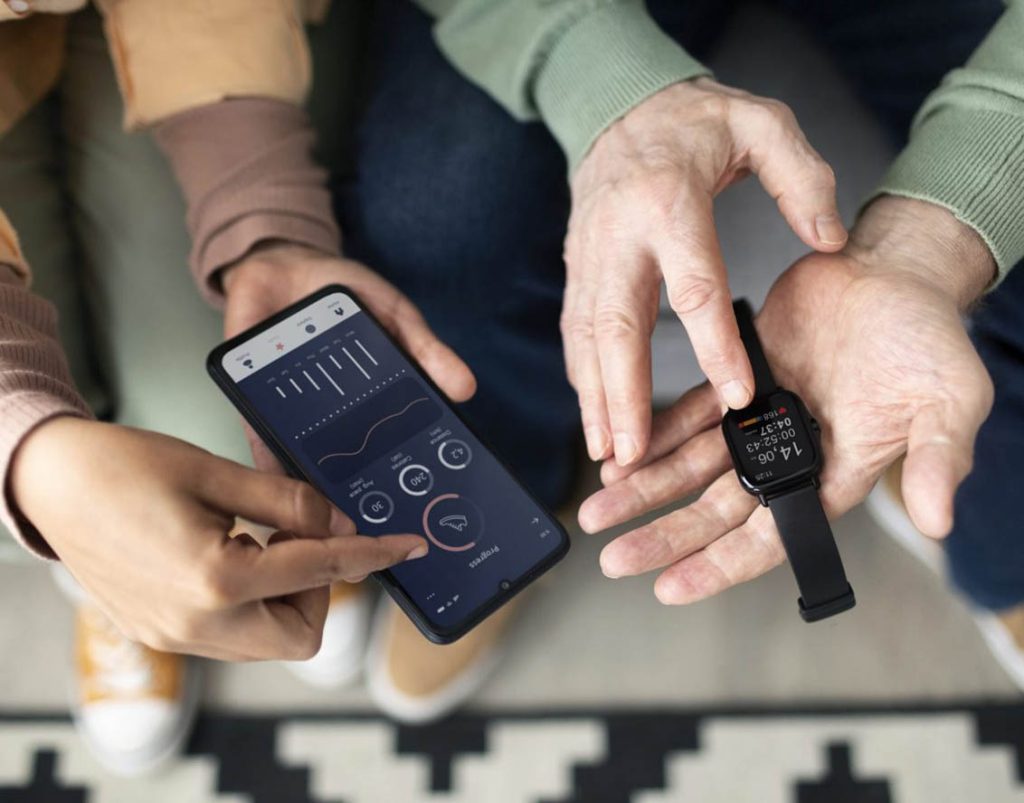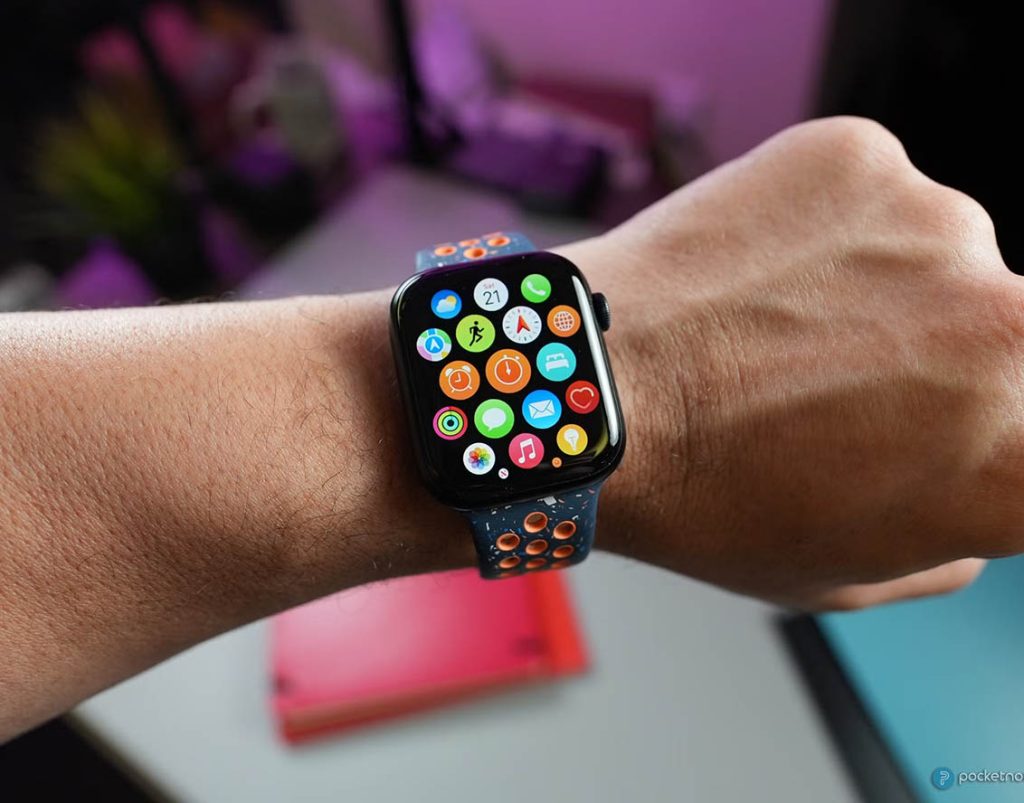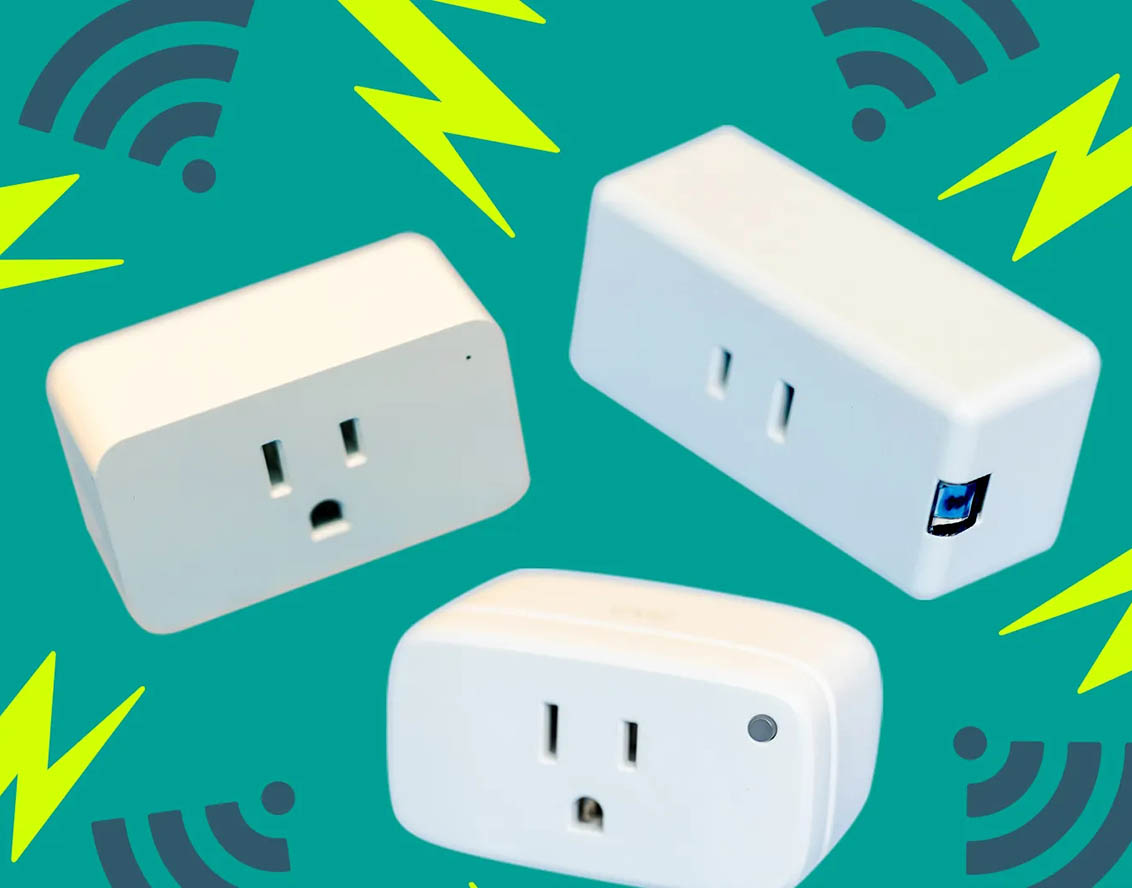With the continuous advancement of technology, the way we manage our health is undergoing an unprecedented transformation. In the past few decades, the field of medicine and healthcare largely relied on traditional diagnostic models and interpersonal communication. However, with the rapid development of wearable technology, we now have more personalized, immediate, and efficient ways of health monitoring. These innovative devices not only collect real-time health data but also assist doctors and patients in making more informed treatment decisions, making the entire healthcare system smarter and more human-centered. I have experienced firsthand how wearable devices are playing an increasingly important role in health management and treatment. Furthermore, brands like Athleta are embracing this technological shift by integrating performance-enhancing features into their activewear, helping individuals track their fitness and overall health while enjoying comfortable, stylish designs that support their wellness goals.
Today, we will explore how wearable technology is transforming healthcare, from health monitoring to personalized treatment, examining the significant changes this technology brings and the ethical and privacy concerns it faces.
Technology Leading Health: The Shift from Monitoring to Prevention
As awareness of health rises, more and more people are focusing on maintaining their well-being and proactively monitoring their physical condition. Traditional healthcare systems have largely focused on disease diagnosis and treatment, but wearable technology allows us the opportunity to prevent health issues before they occur. Through devices such as smart wristbands, smartwatches, and smart clothing, we can monitor a wide range of health metrics in real time, such as heart rate, blood sugar, blood oxygen, and sleep quality, allowing us to detect potential health issues at an early stage.
For example, heart rate monitoring devices track changes in our heartbeat in real time, which not only help us understand the strain on our hearts during exercise but can also detect early signs of heart disease. Devices like smartwatches can also monitor heart rate variability, predicting stress levels and helping us adjust our lifestyles to reduce anxiety and stress, thereby improving our overall health.
For individuals with conditions like diabetes or a family history of cardiovascular disease, wearable technology is a revolutionary tool for health management. For instance, through smart wristbands, users can monitor blood sugar and blood pressure in real time, allowing both patients and doctors to track changes in their condition more accurately, adjusting diet, exercise, and medication plans to reduce the risk of disease.
I personally use a smartwatch for health monitoring, which tracks my daily activities and also monitors my heart rate during exercise. It helps me stay aware of my body’s condition. In my busy routine, this device has become an essential tool in managing my health.
Bridging the Gap Between Data and Care: Making Treatment More Precise
Another significant contribution of wearable technology is bridging the gap between data and care. Traditional health management usually relies on data provided by hospitals and clinics, which is often static, meaning it is only gathered during periodic check-ups. With the proliferation of wearable devices, we now have continuous, real-time health data. This data not only helps us understand our health status at any given moment but also enables doctors to make more precise treatment decisions.
I recall when I went for a routine physical exam last month, the doctor asked me to bring the data from my smartwatch. By reviewing my heart rate, activity level, and sleep quality over the past month, the doctor was able to get a more complete picture of my health and provide recommendations based on my actual condition. Compared to the limitations of single-instance check-ups, this continuous monitoring allows for more timely data, providing more accurate insights into how I should adjust my diet and exercise plans.
Some devices even allow data to be automatically uploaded to hospital systems, which is particularly important for patients with chronic conditions who need long-term monitoring. For instance, a diabetic patient can use wearable technology to track blood sugar changes in real time, enabling the doctor to adjust treatment plans or provide early warnings to prevent sudden health crises.
The Role of Wearable Devices in Personal Health Management
Beyond assisting doctors, wearable technology has made personal health management more convenient. Many people may think that managing health effectively requires frequent visits to hospitals, but wearable technology has broken this notion. Now, we can monitor our health status in real time using smart devices in our everyday lives, allowing us to identify and respond to potential problems as they arise. This makes health management an integral part of our daily routine, rather than something that solely depends on the medical system.
The fitness tracking wristband I use is a perfect example. It not only tracks my steps and exercise levels but also analyzes my sleep quality, reminding me if I am getting enough rest. More importantly, it provides personalized health goals, helping me adjust my exercise plans according to my actual health condition, thus maintaining both physical and mental well-being.
Moreover, these devices are becoming smarter, utilizing AI algorithms to analyze user health data and offer personalized suggestions. For example, if I have poor sleep quality for several consecutive days, the device will automatically remind me to adjust my sleeping habits and even suggest meditation or relaxation techniques to improve my sleep quality.
The widespread use of wearable devices means that everyone can become their own “chief health officer,” and this personalized health management approach not only increases health awareness but also helps reduce the occurrence and development of diseases.

Ethical and Privacy Considerations: Balancing Technology and Privacy
Although wearable technology has shown tremendous potential in health management, the ethical and privacy issues it brings should not be overlooked. With the vast amount of personal health data being collected and stored, ensuring the security and privacy of this data has become a major societal concern.
First and foremost, it is essential to recognize that the data collected by these devices is highly sensitive, including personal information such as exercise habits, sleep patterns, and heart rate fluctuations. If this data is not adequately protected, it could be misused or leaked, violating individuals’ privacy. Even more seriously, if this data is obtained by malicious actors, it could be used for identity theft, fraud, or other criminal activities.
To address these concerns, many manufacturers are enhancing their data protection measures. For example, some devices use end-to-end encryption to ensure the security of user data during both transmission and storage. At the same time, users must understand their privacy rights and choose brands and products that have strong data protection policies.
Additionally, as AI and big data technologies advance, there are concerns about ensuring that personalized treatment recommendations do not overly rely on health data. While AI can provide precise analysis based on large data sets, it still requires professional judgment from doctors to make the final treatment decisions, avoiding over-reliance on technology or misinterpretations of the data.
Recommended Wearable Products
To help you better manage your health, I would like to recommend two wearable products related to this article. These products not only offer high-performance features but also provide tangible benefits for your health management.
- Fitbit Charge 5: This wristband combines health monitoring and fitness tracking functions, allowing you to track heart rate, sleep quality, steps, and stress levels in real time. It provides personalized health advice and is an incredibly practical tool for anyone looking to better manage their health.
- Apple Watch Series 9: As a leader in the smartwatch industry, Apple Watch not only boasts powerful fitness tracking features but also monitors heart rate, blood oxygen levels, and even electrocardiograms (ECG). It syncs with health apps, helping you gain a comprehensive understanding of your health status, and can even send emergency alerts in critical situations.

Athleta: The Perfect Complement for Women’s Health
I understand the importance of selecting comfortable and high-quality activewear when engaging in physical activity. Athleta, a brand specializing in women’s sportswear, provides designs that are not only fashionable but also technologically advanced, making them perfect for health-conscious women. Whether you’re practicing yoga, running, or hitting the gym, Athleta’s products offer comfort and confidence, helping you unleash your full potential.
Athleta’s activewear uses high-tech fabrics that provide excellent comfort and breathability during exercise, enabling you to better manage your physical condition while working out. Whether participating in yoga classes or enjoying outdoor activities, Athleta offers the perfect gear to help you stay in optimal shape at all times.
The rapid development of wearable technology is revolutionizing how we manage our health. From real-time monitoring to personalized treatment, it offers unprecedented convenience and precision. While technological advancements present numerous challenges, we can ensure its safe, reliable, and effective application in healthcare through appropriate privacy protection and ethical considerations. I hope this article provides you with a clearer understanding of the role wearable technology plays in healthcare and that you can take full advantage of this technology in your daily life to lead a healthier future.
Meanwhile, Athleta, as a brand dedicated to women’s sportswear, provides high-performance activewear that enhances your health management efforts. Whether it’s the comfort you need during exercise or recovery gear for post-workout, Athleta supports you in feeling your best and embracing your healthiest self.


